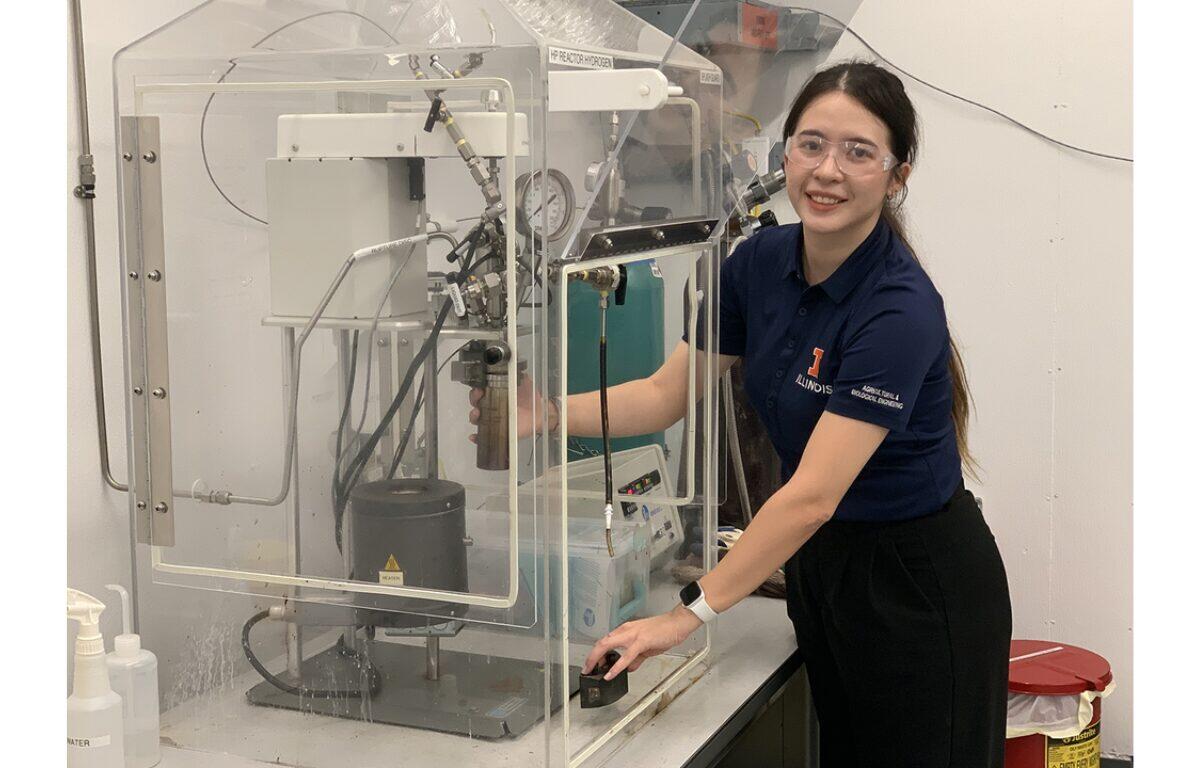CHAMPAIGN, Ill. (Chambana Today) — Scientists at the U of I have developed a breakthrough method to transform food waste into sustainable aviation fuel (SAF) that meets industry standards without blending fossil fuels. The new process, published in Nature Communications, could help the aviation industry achieve its goal of net-zero carbon emissions by 2050.
The research team used a process called hydrothermal liquefaction (HTL) to convert food waste into biocrude oil, which was then refined into jet fuel using hydrogen and catalysts.
“HTL basically mimics the natural formation of crude oil in the Earth. It uses high heat and pressure to convert wet biomass into a biocrude oil. The goal of this work is to upgrade that biocrude oil into transportation fuels that can go directly into existing energy infrastructure,” said lead author Sabrina Summers, a recent doctoral graduate in Agricultural and Biological Engineering (ABE).
The researchers sourced food waste from a nearby processing facility, but the process can also use sewage sludge, algal blooms, swine manure, and agricultural residue.
“To meet the aviation industry’s goals to decarbonate jet fuel, we need many different renewable sources, and agriculture is going to play a critical role in terms of providing the feedstocks,” said ABE professor and corresponding author Yuanhui Zhang.
After refining the biocrude oil and removing impurities, the team’s fuel passed all American Society for Testing and Materials (ASTM) and Federal Aviation Administration (FAA) prescreening tests for conventional jet fuel.
Zhang said the discovery could open the door to large-scale production and new economic opportunities. “Our research helps solve the science and engineering problems, and then the industry can step in. The process can be applied to other types of oils for SAF. It can also replace other materials, such as petroleum-derived compounds for making plastics. This has huge potential for business opportunities and economic development,” he said.
The project also supports a “circular bioeconomy,” Zhang added. “In a linear economy, we just produce something, use it, and throw it away. In this project, we take the waste and recover the energy and materials to make a usable product. This fills a missing link in the circular paradigm,” he said.
The study, “From food waste to sustainable aviation fuel: cobalt molybdenum catalysis of pretreated hydrothermal liquefaction biocrude,” was funded by the U.S. Department of Energy and the National Science Foundation Graduate Research Fellowship Program.


